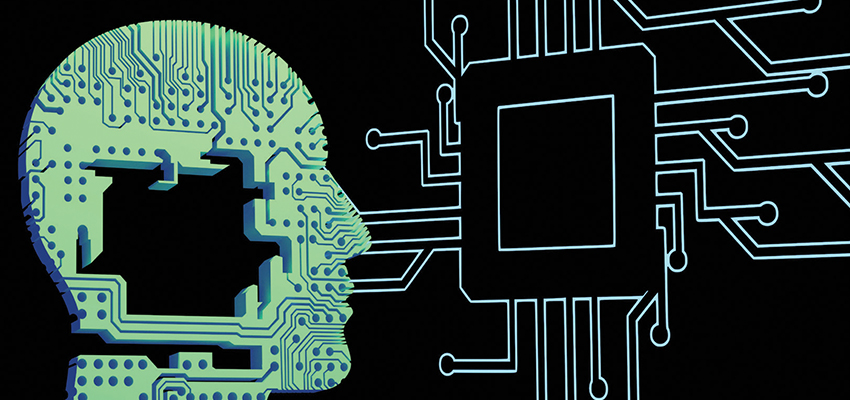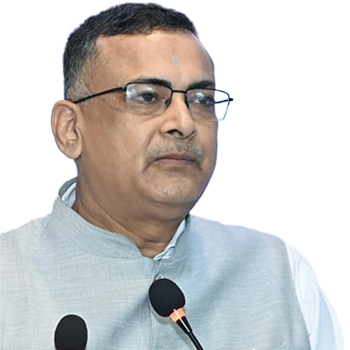Embrace Technology for Greater Good

Using technology for the greater good can transform the world better, says Mukesh Ranjan Das, Executive Director-HR, Indian Oil Corporation, in his special address at the recently held CII HRIR Conference 2024, in Mumbai. Talking on the topic of ‘Navigating the future of HR in the digital era’, Das also touched on the points of digital technology and the future of HR. Corporate Citizen brings you excerpts of the inspiring talk
The digital era
I am reminded of my college days when there used to be a computer lab. It was the only air condition room in the college and we used to take off our footwear before entering the lab, just like we do while entering a temple. Gradually, the computer came to our desk as a PC desktop, followed by laptop in our laps and now in our palms as mobile devices. Soon you will be finding these devices inside of our body—Google is working on that.
The speed of the technology advancement is growing rapidly. It took the radio 38 years to reach one billion consumers, while the TV managed to do it in just 13 years. Facebook took 8 years, and now ChatGPT has touched 20 million users in just two months.
Around 83 per cent of world population is reported to have mobile devices, while artificial intelligence is growing at the rate of 40 per cent CAGR. The significant growth is happening when the world is struggling to maintain a digital growth of 2-3 per cent. According to a LinkedIn post, on 22nd February this year, the stock of Nvidia, the chip maker for powering AI, jumped to 16 per cent in a day and in dollar terms it was $273 billion. The GenAI will impact 50 per cent of working hours and create $10 trillion in economic value by 2038. This shows that the speed and scale of digital technology is overwhelming. Those who leverage technology, they will not suffer much.
The future of HR
The second part of the topic is the future of HR. I consider HR as a health rendering department which has three parts to it—the science, the art and the craft. The science part includes payroll, people analytics, employee self-services, creation of employee experience through chatbots, automatic services and Augmented Reality-Virtual Reality.
The craft part is managing the team and its culture. The HR person is a culture curator, training lead analyst and designing reward schemes. Science and technology can help as a tool in craft, but the art part lies in mentoring, coaching, counselling and leadership development. And, I believe that no technology can replace it.
Further, there is also a fourth wave of HR which I learnt recently in an International Conference at Goa. The fourth wave is about the "Outside-in HR", meaning that we cannot only focus on employees but also have to factor in stakeholder and the customers. An HR should account for how to make customers happy and design the process accordingly. This fourth wave of HR also comes under art part. The technology will soon take over the science aspect. However, the craft part will be used as tool while the art part will continue to be important.
"Spiritual intelligence becomes very important, because of what we do, and whether it is creating a greater good. Sustainability will come only when we are thinking of greater good"
-Mukesh Ranjan Das
How do we navigate the future
 Mukesh Ranjan Das
Mukesh Ranjan Das
To navigate the future there are three mantras—the first and foremost is, the HR federate should create digital mind-set, digital frequency and digital fluency, in our population—it is essential. We need to embrace the technology and those who do not, will be left behind.
The second mantra is Life-Long Learning, because the shelf life of knowledge and skill itself is rapidly decreasing. As per a report, it is only 1.5 years for IT and in general it is five years, which earlier used to be 10-15 years. So, lifelong learning is the only option. You can leverage it through Learning Management System (LMS) softwares. Each company should have their own LMS. We had one called 'Swadhyay', which had around 6000 course completions before Covid pandemic. However, post pandemic, it has increased to approximately 2.4 million. We also had an LMS for our external business associate, which has reached somewhere near 20 lakh.
The third mantra is promoting holistic intelligence. When I say holistic intelligence, it comprises of three parts: cognitive intelligence, emotional intelligence and spiritual intelligence. Cognitive intelligence will take a part of the science aspect. Emotional intelligence has to run parallel with artificial intelligence as it will help us in building the teamwork and developing the empathetic leadership. And, the last part is spiritual intelligence, which is essential to ensure that we use technology in creating a greater good.
Transform the world for the better
Recently, I read in the newspaper that a senior citizen was duped of `80,000 by an AI-driven voice clone. The AI acted as if his son was on the call and in the process the senior citizen was duped of `80,000. So, at the end of the day, spiritual intelligence becomes very important, because of what we do, and whether it is creating a greater good. Sustainability will come only when we are thinking of greater good.
So all of us have to have the eye of three intelligences that is cognitive, emotional and spiritual intelligence. I also appeal to the HR fraternity to promotes holistic intelligence, life-long learning and ensure that technology is used for the greater good. By doing so, we can transform the world for the better.